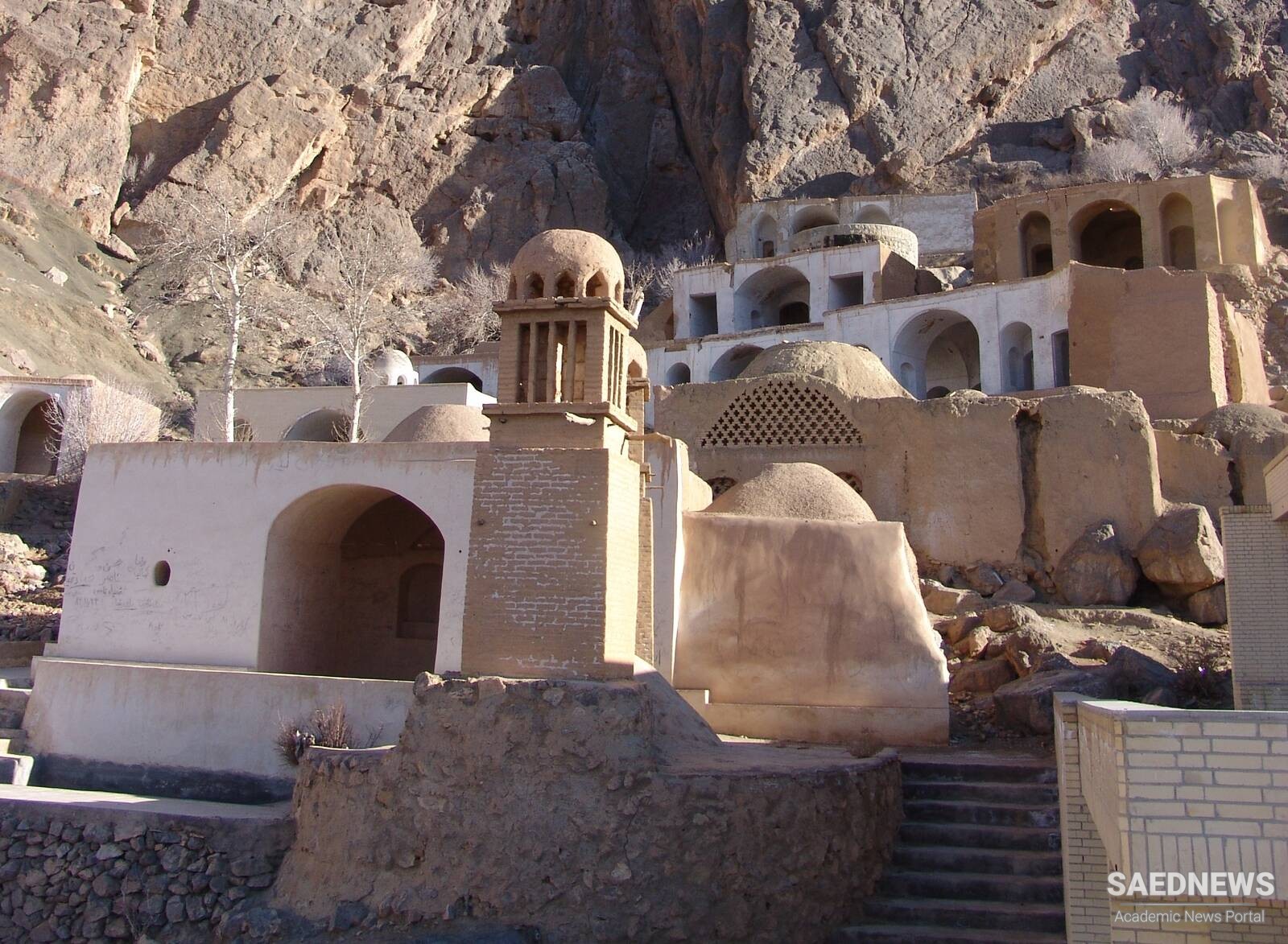It is about one hour far from Yazd, close to the not so high mountains of Naraki, there is a shrine that is called Pire Naraki. This shrine is placed in the heart of the mountain, between two valleys named Gigoon and Zanjir and it is restricted to Tijang village from three sides.
According to the narratives, the construction of this shrine is related to one of the Yazdgerd III’s daughters, the last king of Sassanids. Based upon the story, Nazbanoo was escaping from Arab army forces along with one of her handmaids. They passed through lands to find a shelter in Yazd mountains. She didn’t find a shelter and ask God’s help. They disappeared into the heart of the mountain, by the permission of God and a water spring flowed at this place afterward. Many years later, a passenger who passed through this place dreamt of the princess, in which she asked him to build a shrine in this place.
It is possible for all people to visit this place, however, Zoroastrians gather here in some special days and hold some ceremonies that are not only religious but also they have some social importance. For example, they play music, sing, introduce young couples, award the elites of art and science in some cultural, artistic and literal conferences. People participate in this ceremony every year from 12 to 16 Amordad.
On top of the stairs, a building from adobe and clay, the same color as Kavir, appears in front of you. You will enter a large room that is surrounded by benches for participators and visitors. There is a firebox in the center into which the Zoroastrians pour some rue and Boswellia while whispering a special prayer.
There are also some settlements for the visitors outside the building that are called Khileh. Also, you can see a place for washing hands and face and a basket full of white hats that visitors must wear for pilgrimage.


 Arabian Peninsula Begins to Rise
Arabian Peninsula Begins to Rise














































